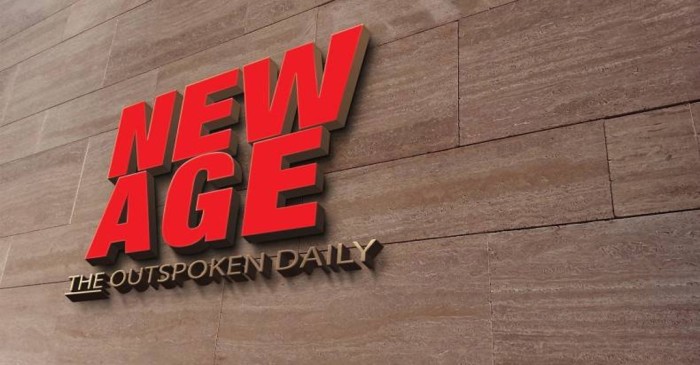Listen to the article
In the digital age, algorithms that prioritize engagement over accuracy are rapidly eroding the foundations of democracy, experts warn. While democratic systems traditionally rest on shared truths and institutional trust, today’s information landscape increasingly threatens these vital pillars.
Social media platforms and search engines, designed primarily to maximize advertising revenue rather than educate users, have created an environment where sensationalism and misinformation often receive greater visibility than verified facts. Research consistently shows that false information spreads more quickly online than truth, largely because it triggers emotional responses like fear and anger.
“When societies lose agreement on basic facts, rational debate and collective decision-making become near impossible,” explains Md Mominur Rahman, assistant professor at the Bangladesh Institute of Governance and Management. This fracturing of shared reality undermines democracy’s core function—the ability of citizens to make informed decisions about their governance.
The challenge has intensified with recent advances in artificial intelligence. Sophisticated deepfake videos, synthetic images, and AI-generated texts now create convincing false realities that even careful observers struggle to identify. While AI offers tremendous potential benefits across sectors, it has simultaneously reduced the cost and increased the scale of deception.
For democratic systems worldwide, the consequences are profound. Elections can be manipulated through coordinated disinformation campaigns. Public figures face character assassination that spreads globally within hours. Trust in fundamental institutions erodes steadily under persistent attacks.
Even established democracies aren’t immune, experiencing increased polarization, challenges to electoral legitimacy, and declining civic trust. In more fragile democratic systems, these dynamics can threaten basic political stability.
The problem extends beyond technology itself. Political leaders increasingly weaponize the term “fake news” to dismiss legitimate journalism, avoiding accountability and delegitimizing critics. This tactic further blurs the line between deliberate deception and legitimate critique, leaving citizens struggling to determine what information deserves their trust.
Technology companies occupy a complex position in this ecosystem. While digital platforms have expanded opportunities for civic engagement and mobilization, their profit-driven algorithms simultaneously amplify harmful content. Content moderation remains inconsistent, and algorithmic decision-making largely operates without transparency.
Regulatory responses vary significantly worldwide. The European Union’s Digital Services Act represents one of the most comprehensive attempts to establish platform accountability, though implementation challenges remain substantial. In many regions, legislation either doesn’t exist or risks misuse to suppress legitimate dissent under the pretext of fighting misinformation.
Protecting democracy requires a multi-faceted approach, Rahman argues. Technology firms must take greater responsibility for their algorithms’ impacts through independent audits, increased transparency, and stronger content moderation. Governments need carefully crafted legislation that targets harmful content while preserving free expression.
As artificial intelligence capabilities advance, global standards for ethical use become increasingly urgent. Tools for detecting and clearly labeling AI-generated content should be prioritized in development efforts.
Education systems must integrate media literacy and critical thinking skills as core components rather than optional additions. “Citizens must learn to question sources, verify information, and resist manipulation,” Rahman notes. “These are no longer optional skills but democratic necessities.”
Independent journalism plays an essential defensive role through investigative reporting, rigorous fact-checking, and transparent editorial practices. Collaboration between journalists, fact-checkers, and technology platforms can help ensure harmful falsehoods are identified and contextualized before causing lasting damage.
While democracy offers unparalleled opportunities for human participation in governance, its vulnerabilities to algorithmic manipulation and artificial intelligence-accelerated disinformation continue growing. If left unchecked, these forces threaten to distort democratic processes at every level.
“Democracy cannot thrive in a world where lies travel faster than facts,” Rahman concludes. “To protect its future, we must reclaim the digital space as one where truth shapes our collective decisions.”
Fact Checker
Verify the accuracy of this article using The Disinformation Commission analysis and real-time sources.




9 Comments
This is a sobering analysis of the threats posed by disinformation in the digital age. Safeguarding the foundations of democracy is indeed an urgent challenge. I’m hopeful that with concerted effort, we can find ways to uphold truth and strengthen civic discourse.
This is a concerning issue that goes to the heart of a healthy democracy. Algorithms that prioritize engagement over truth can indeed erode public trust and shared reality. Protecting the integrity of information and empowering citizens to make informed decisions is crucial.
Deepfakes and synthetic media add another troubling dimension to the spread of misinformation. Ensuring the public can reliably distinguish truth from fiction will be an ongoing battle. Regulators, tech companies, and citizens all have a role to play in safeguarding democratic discourse.
Absolutely. The proliferation of convincing but fabricated content is a major challenge. Verifying sources and exercising digital discernment will be crucial skills for the public going forward.
I appreciate the experts’ insights on this complex challenge. Combating the spread of misinformation, particularly on social media, will require multi-stakeholder collaboration and a renewed commitment to digital literacy and critical thinking. Reasonable people can disagree, but facts must form the foundation.
You make a good point. Constructive dialogue and a shared basis in facts are essential, even as we grapple with emerging technological threats to the information landscape.
The fracturing of shared reality is indeed a grave threat. Restoring trust in institutions and equipping citizens to navigate the information landscape will be critical. This is a complex, multifaceted issue requiring concerted, collaborative efforts.
I’m curious to learn more about the specific policy and technological solutions being proposed to address this problem. Protecting democratic norms in the digital age will require innovative approaches and a shared commitment to truth and transparency.
That’s a great question. Experts are exploring a range of potential interventions, from platform regulation to digital literacy programs. Identifying effective, scalable solutions will be key.